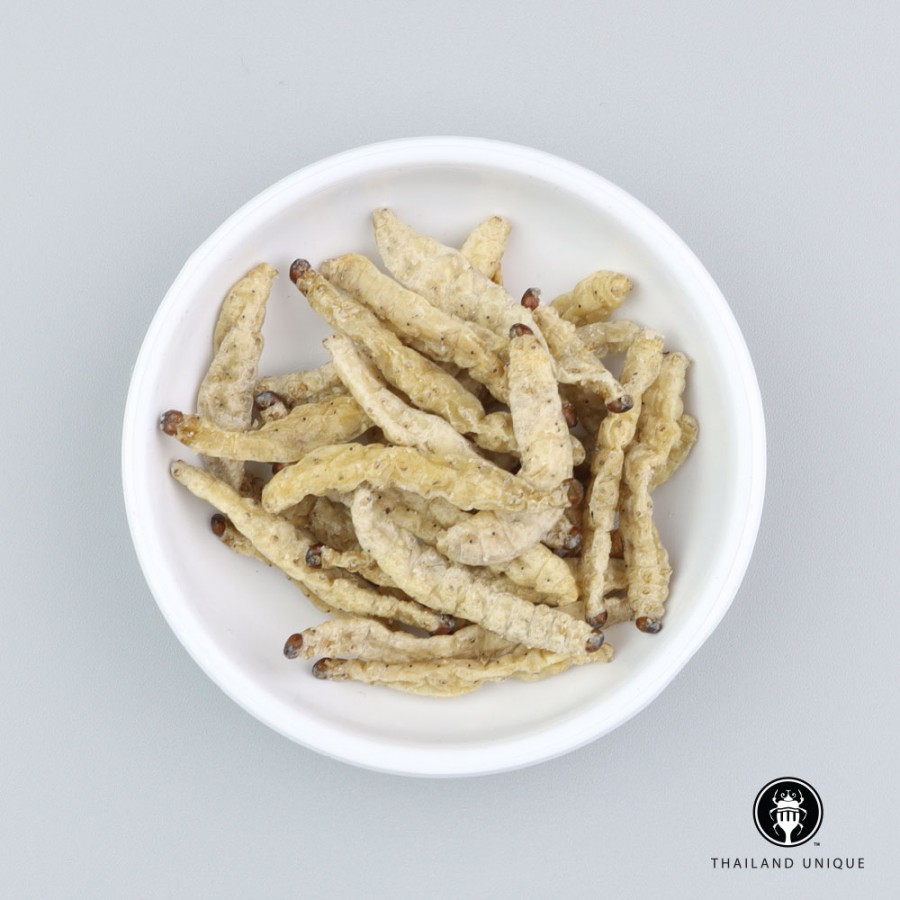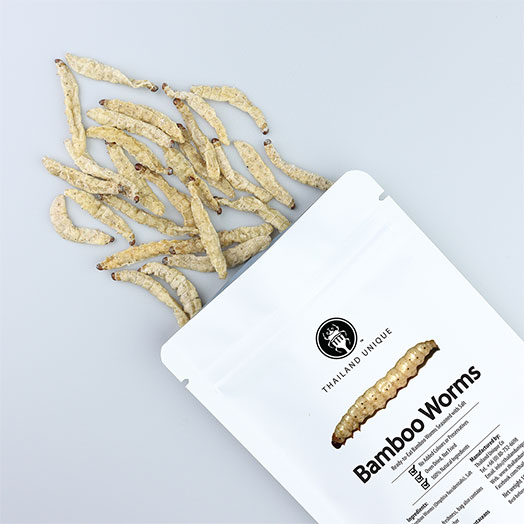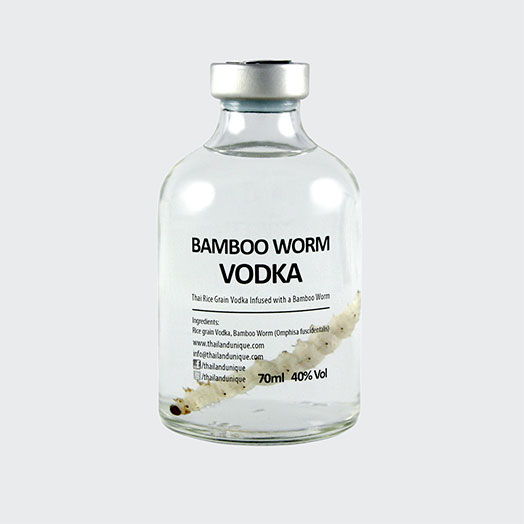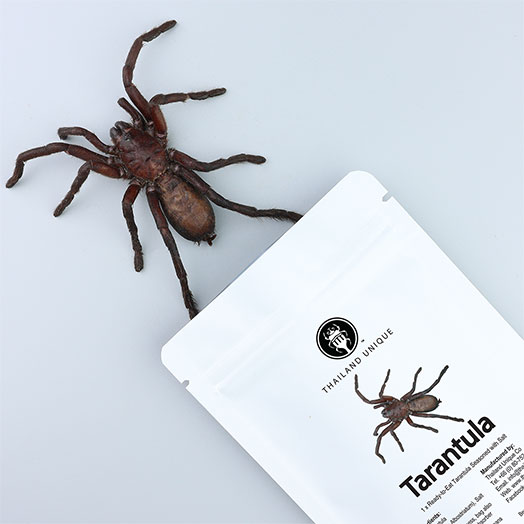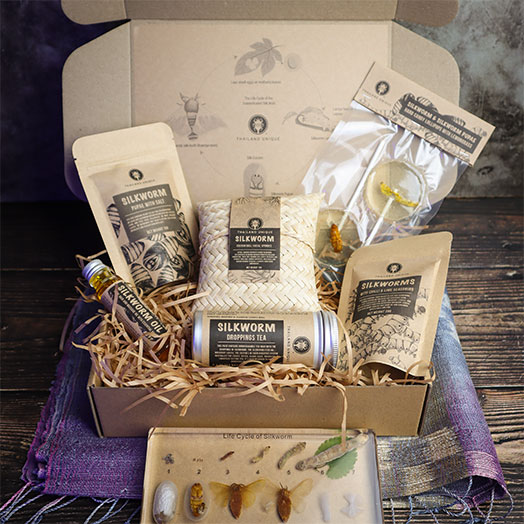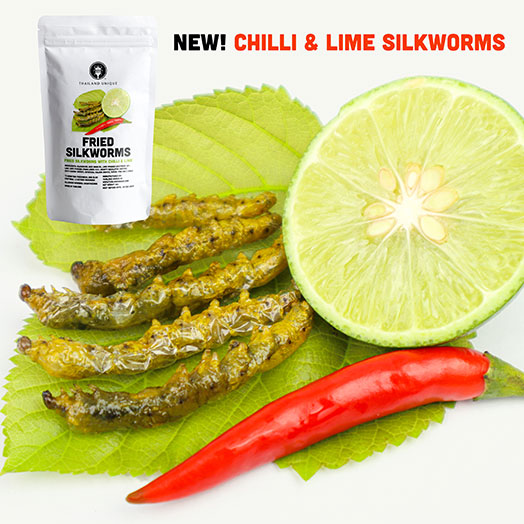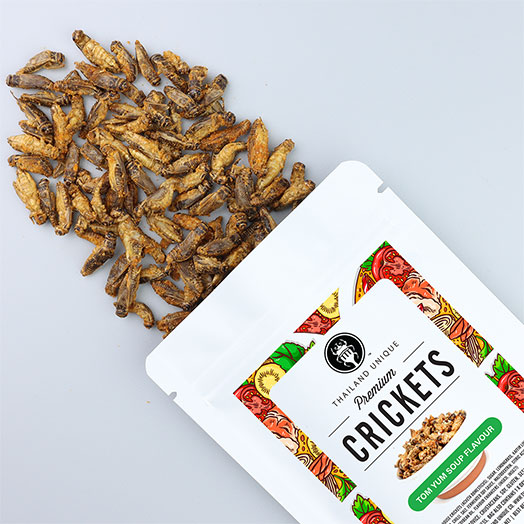Edible Bamboo Worms (Omphisa fuscidentalis) 500g Bag
Bamboo Worms: A Delicacy from Thailand
Exploring the World of Edible Insects
In the diverse culinary landscape of Thailand, bamboo worms, known locally as "Rod Duan," are a popular edible insect that has captivated both locals and adventurous eaters alike. These larvae, the offspring of moths that thrive on flowering bamboo trees, offer a unique and delicious experience for those willing to explore entomophagy, the practice of eating insects.
Collection of Bamboo Worms
The process of collecting bamboo worms is both fascinating and labour-intensive. It begins with skilled gatherers venturing into bamboo forests, a common sight in the northern provinces of Thailand. Here, they identify bamboo trees that show signs of infestation by moths, mainly flowering, as these trees provide the ideal environment for the larvae to thrive.
Using sharp tools, the gatherers carefully split open the bamboo stalks, revealing the hidden larvae nestled within. The worms are then collected by hand, requiring precision and patience. Bamboo worms are typically found in clusters; each tree can yield many of these edible treasures.
Preparation and Cooking
Once collected, the bamboo worms are thoroughly cleaned to remove dirt or debris. Preparation methods can vary, but one of the most common ways to enjoy bamboo worms is by simply seasoning them with a pinch of salt and lightly frying them. This method enhances their natural creamy flavour and gives them a texture reminiscent of popcorn, making them a delightful snack.
Bamboo worms are also incorporated into traditional dishes in some regions, adding a unique twist to local cuisine. They can be stir-fried with vegetables, mixed into omelettes, or even used as a topping for salads. Their versatility in the kitchen has made them a cherished ingredient among those who appreciate the diverse flavours of Thai food.
Nutritional Benefits
Bamboo worms are not only delicious but also highly nutritious. They are a rich source of protein, essential fatty acids, and various vitamins and minerals. Unlike conventional livestock, bamboo worms have a low environmental impact, making them a sustainable choice for those looking to reduce their carbon footprint.
Consuming bamboo worms can contribute to a balanced diet, providing an alternative source of protein that is both eco-friendly and packed with health benefits. The creamy taste and crunchy texture make them an appealing option for those new to edible insects, offering a gentle introduction to this sustainable food source.
Cultural Significance
In Thailand, the consumption of bamboo worms is deeply rooted in tradition. They have been a part of the local diet for centuries, celebrated for their unique flavour and nutritional value. Markets and street vendors across the country proudly display bags of bamboo worms, enticing passersby with the promise of a tasty and exotic snack.
Bamboo worms also play a role in regional festivals and culinary events, where they are showcased as a delicacy. Tourists and locals flock to these events to sample the various preparations of bamboo worms, gaining an appreciation for the rich culinary heritage of Thailand.
Conclusion
Bamboo worms are more than edible insects; they connect to Thailand's natural environment and cultural traditions. Their collection, preparation, and consumption offer a glimpse into the sustainable practices and innovative culinary techniques that define Thai cuisine. For those willing to step outside their culinary comfort zone, bamboo worms provide an unforgettable experience that celebrates Thailand's rich biodiversity and gastronomic heritage.
So, the next time you visit Thailand, why not try bamboo worms? You might discover a new favourite snack that is as fascinating as it is delicious. Or, you can buy a bag from our store, where we offer them cooked and ready-to-eat in convenient foil pouches.
Related Products
Edible Bamboo Worms
Edible Bamboo Worms (Omphisa fuscidentalis) They are grubs, but could pass for corn puffs, and ha..
$4.50 $5.80
Bamboo Worm Vodka 60ml (Round)
Bamboo Worm Vodka 60ml 40%v/v in a injection vial bottle This special triple distilled vodka is i..
$5.70
Tags: bamboo worms, dehydrated bamboo worms
Recommended Products
Edible Tarantula Haplopelma albostriatum
This bag contains one old-world edible Tarantula (Cyriopagopus albostriatus, previously Haplopelma A..
$9.80
Amazing Silk Moth Gift Set
Discover the Amazing Silk Moth Educational Gift Set from Thailand Unique! This one-of-a-kind gift se..
$17.00
Fried Silkworms - Chilli & Lime Flavour
Crispy Fried Silkworm (Bombyx Mori) with a tasty chilli and lime seasoning. Silkworms have an a..
$4.50
Crickets - Tom Yum Flavour
Bag of ready-to eat house crickets seasoned with Hot & Spicy Tom Yum Soup seasoning House Crick..
$3.90

